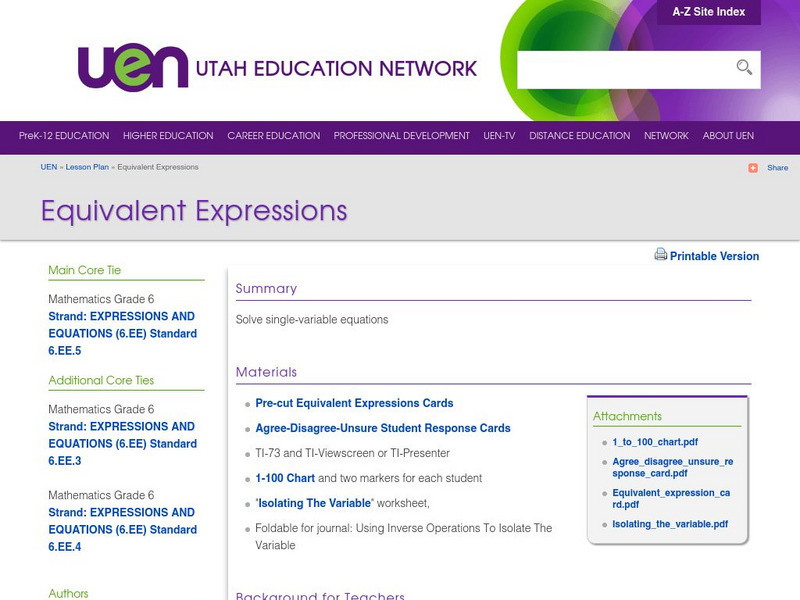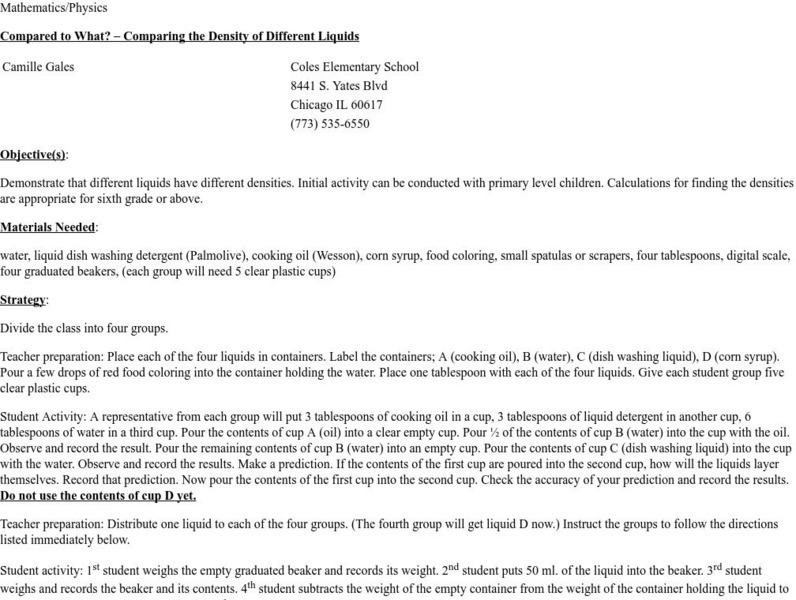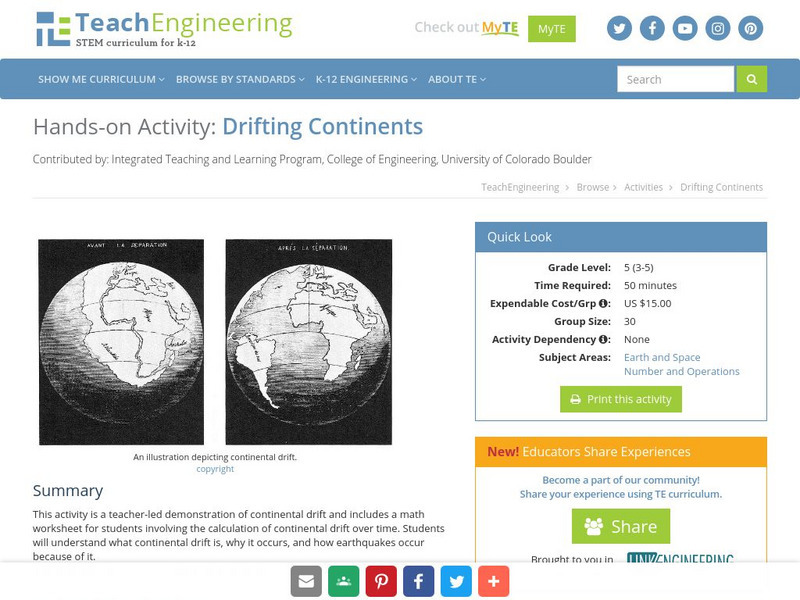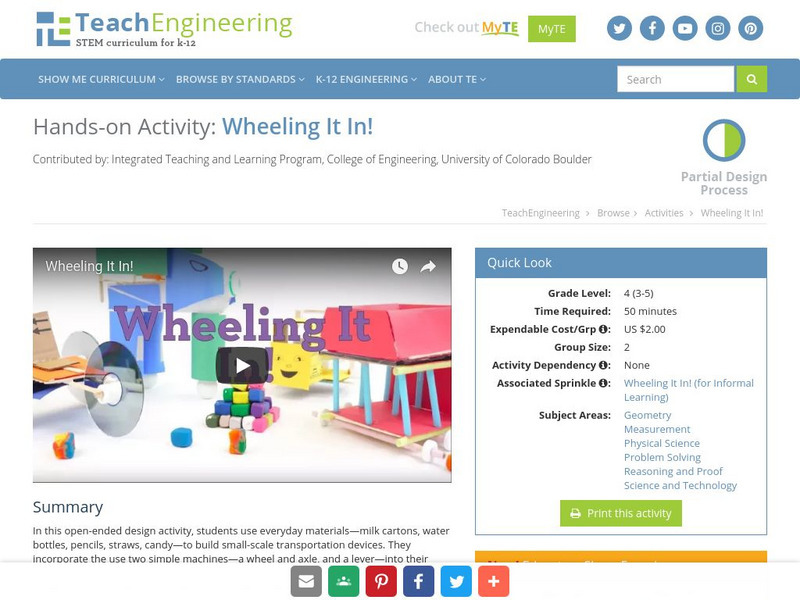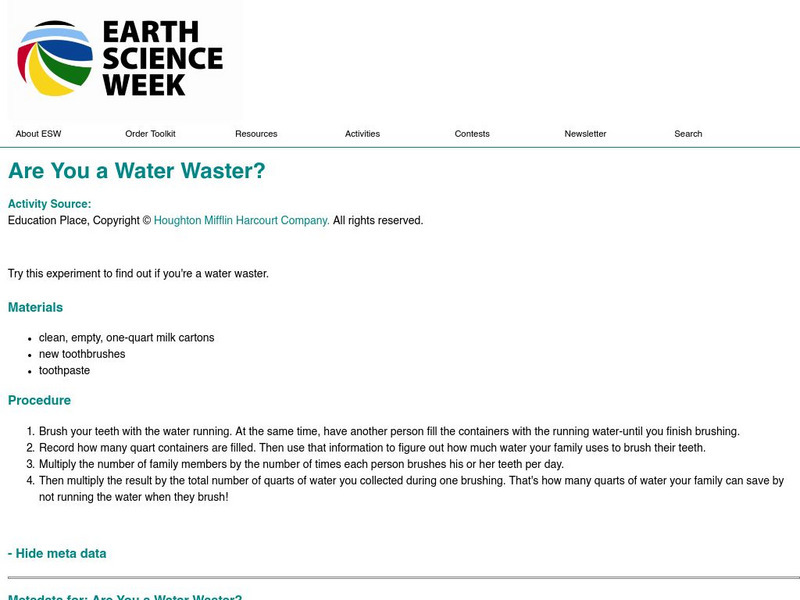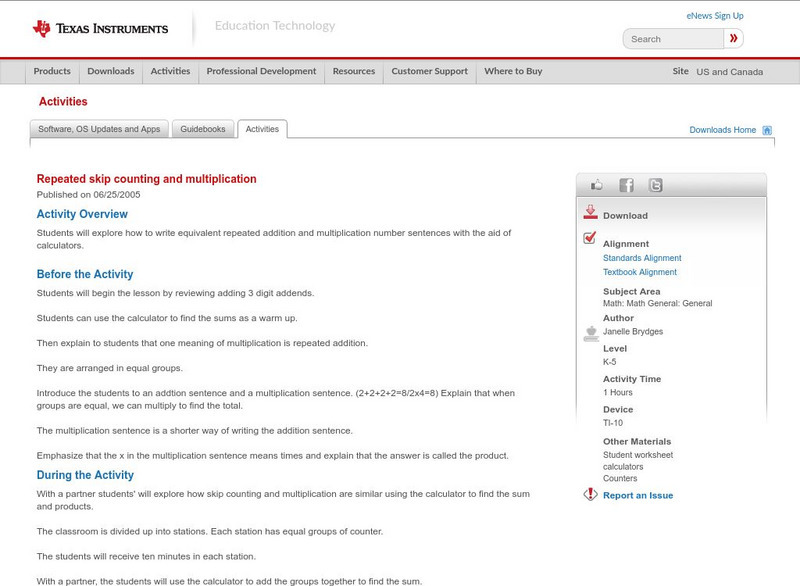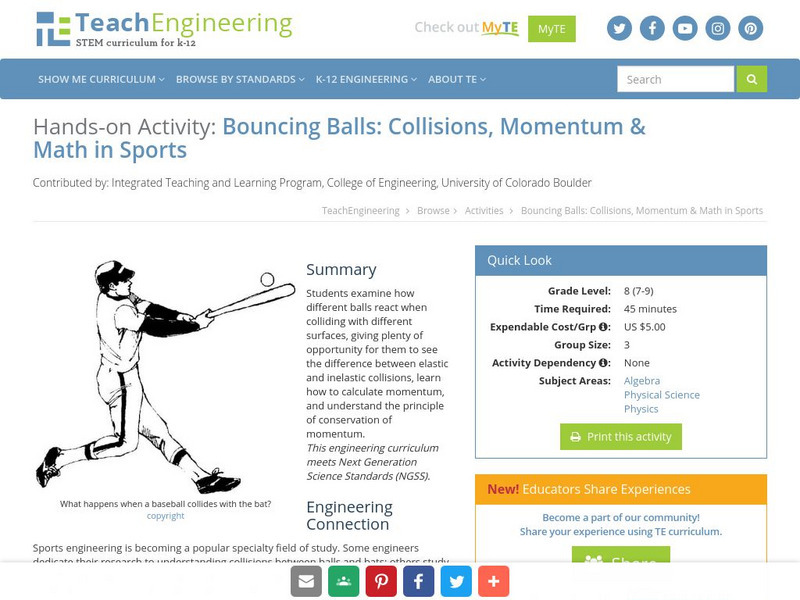Texas Instruments
Texas Instruments: Addition Check With Calculators
Students will solve addition problems and use calculators to check their answers.
PBS
Pbs: The Lowdown: Defining and Calculating Percents
Explore methods for calculating and comparing discounts in this video from KQED. In the accompanying classroom activity, students develop different strategies for calculating and comparing discounts, including percent off a price,...
Museum of Science
Museum of Science and Industry: Online Science: Activities: Cookie Mining
An activity where students simulate the process of extracting coal from the ground using chocolate chip cookies. They then calculate the costs involved to determine whether coal mining is profitable.
Education Development Center
Tune in to Learning: Understanding Interest
Using this interactive lesson, you'll calculate compound interest and compare interest rates. In addition to learning about interest, you will also be learning about taking out a mortgage on a home. Three activities with questions...
University of South Florida
Fcat: Get a Half Life!: Teacher Notes
Learners use M&M's and a graphing calculator to collect and graph data. This activity helps them to understand exponential functions and the concept of half-life.
University of South Florida
Florida Center for Instructional Tech: Wacky Water World
At this site investigate linear equations with a graphing calculator. Data is gathered from a hypothetical situation of purchasing tickets at a waterpark.
Utah Education Network
Uen: Equivalent Expressions
This multi-segment lesson plan uses games and calculators to explore the concept of equivalent expressions. Students work together using inverse operations to isolate variables in algebraic equations. It also provides attachments for...
PBS
Pbs: Scientific American Frontiers: Teaching Gude: Healthy Choices
Through this activity, high school students keep track of what they eat everyday and compare their nutrient intake with the minimum requirements for good health.
Science and Mathematics Initiative for Learning Enhancement (SMILE)
Smile: Comparing Liquid Density
Because different liquids have different properties, density also differs. For this lesson from the Illinois Institute of Technology, learners will calculate densities of water, dish-washing detergent, cooking oil, and other liquids.
PBS
Pbs Teachers: Supersonic Dream
Examine how fuel use affects the mass of different planes during flight. This activity teaches students how to determine the per person fuel cost of a transatlantic flight for seven airplanes, and display the results on a bar graph....
TeachEngineering
Teach Engineering: Drifting Continents
This activity is a teacher-led demonstration of continental drift and includes a math worksheet for students involving the calculation of continental drift over time. Students will understand what continental drift is, why it occurs, and...
TeachEngineering
Teach Engineering: Wheeling It In!
In an open-ended design activity, students use everyday materials (milk cartons, water bottles, pencils, straws, candy) to build a small-scale transportation device. They incorporate the use of a wheel and axle, and lever into their...
American Geosciences Institute
American Geosciences Institute: Earth Science Week: Are You a Water Waster?
In this activity, students monitor how much water is used if the water is left running while they brush their teeth. They use that information to calculate how much the whole family would use. They learn how much water can be conserved...
American Geosciences Institute
American Geosciences Institute: Earth Science Week: Measure for Measure
In this activity, learners will calculate scales of distance and length as used by ocean drilling scientists.
Texas Instruments
Texas Instruments: Repeated Skip Counting and Multiplication
Students will explore how to write equivalent repeated addition and multiplication number sentences with the aid of calculators.
Texas Instruments
Texas Instruments: Exploring Quadrilaterals With Cabri Jr.
Students can use Cabri Jr. software on their TI-83/84 calculator to connect consecutive midpoints of different quadrilaterals and analyze and determine characteristics of the new quadrilateral formed.
Texas Instruments
Texas Instruments: Summarizing Distributions of Univariate Data
Students understand statistical concepts like center of data and the amount of data variation from the center. They calculate the measures of the center of a distribution and the measures of spread for the data collected as a list....
TeachEngineering
Teach Engineering: Cost Comparisons
Students learn about the many types of expenses associated with building a bridge. Working like engineers, they estimate the cost for materials for a bridge member of varying sizes. After making calculations, they graph their results to...
TeachEngineering
Teach Engineering: Power, Work and the Waterwheel
Waterwheels are devices that generate power and do work. Students construct a waterwheel using two-liter bottles, dowel rods and index cards, and calculate the power created and work done by them.
TeachEngineering
Teach Engineering: Bouncing Balls
Students examine how different balls react when colliding with different surfaces, giving plenty of opportunity for them to see the difference between elastic and inelastic collisions, learn how to calculate momentum, and understand the...
National Council of Teachers of Mathematics
Nctm: Illuminations: Line of Best Fit
Use this applet to learn about a line of best fit for a set of data points. Some example data in this site include statistics from the 2004-2005 LA Lakers season. Students can guess the equation for a set of data points before the applet...
TeachEngineering
Teach Engineering: A Tornado in My State?
Students will analyze data of tornadoes throughout the United States. They will create a bar graph of the number of tornadoes for the top ten states in the country and then calculate the median and the mode of the data.
Consumer Financial Protection Bureau
Consumer Financial Protection Bureau: Managing Credit Card Payments
Students use a simple formula to calculate the true cost of items bought with a credit card.
Science and Mathematics Initiative for Learning Enhancement (SMILE)
Smile: The Center of Mass
This site from the Illinois Institute of Technology provides a lab activity in which students determine the location of the center of mass of an irregularly shaped object. Observations are related to the balancing point of the object....






